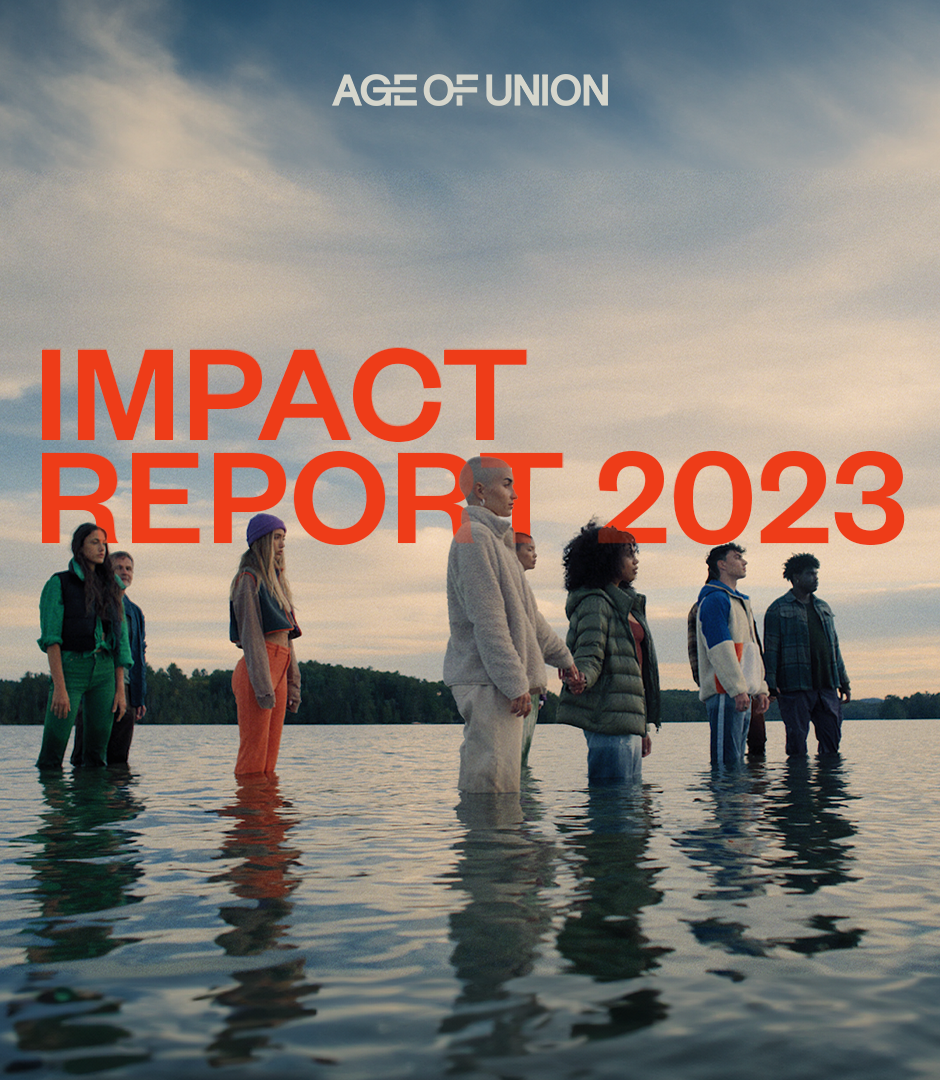Quebec Wildfires Show the Urgent Need for Conservation
Article
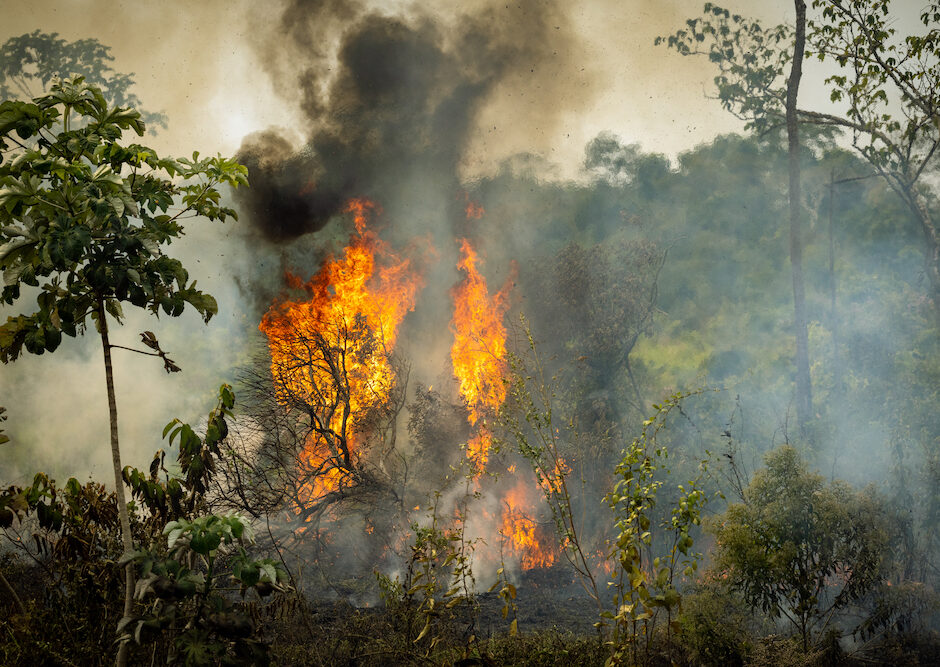
Ending our reliance on fossil fuels is a fire safety measure — so is investing in conservation efforts.
Author
Joe McCarthy
Topics
The ongoing wildfires in Quebec’s Boreal Forests made international news after unusual wind patterns pushed the resulting smoke south, engulfing major metropolitan areas in Canada and the United States.
Before-and-after scenes and time lapses of the hazy smoke look lifted from an apocalyptic film — a grim but apt metaphor.
The fires have immolated nearly three-quarters of a million acres of forest, roughly 300 times the average annual burn rate at this point in the season. An estimated 110 fires are still raging, with 39 considered out of control despite full-scale firefighting efforts that include teams from South Africa, Australia, and New Zealand.
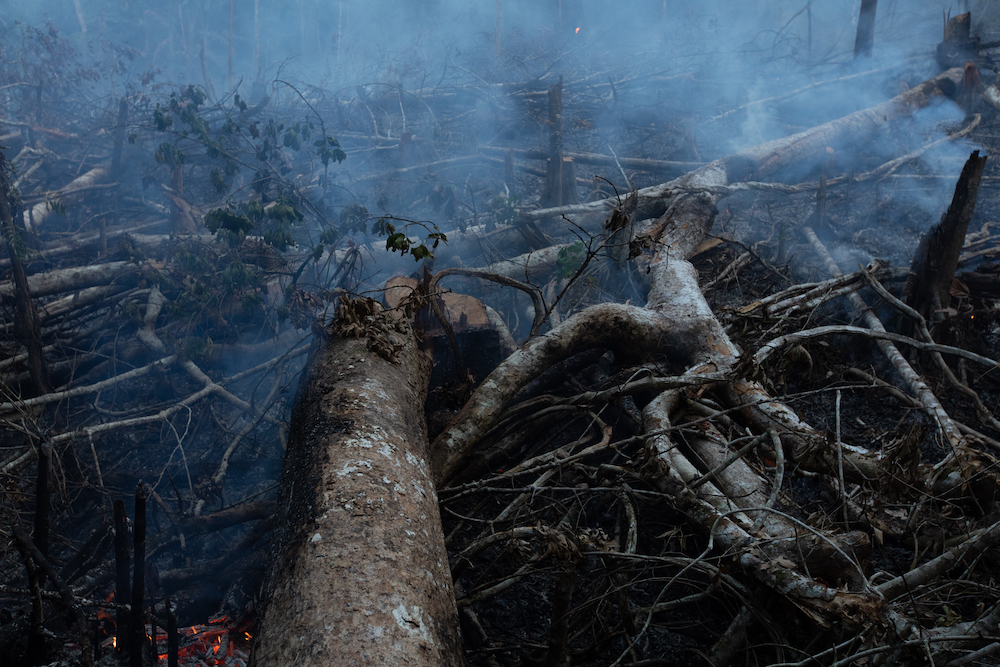
News coverage has focused on the role climate change has played in fueling the extraordinary fires. Record-breaking heat in the weeks preceding the fires, combined with lower-than-usual precipitation, created pervasive dryness in the soil and underbrush. When a series of thunderstorms arrived, hurling lightning bolts at the ground and trees, the conditions were perfect for instant ignition.
The fires are another urgent wake-up call that countries must rapidly phase out the fossil fuels that are warming the planet. As temperatures soar beyond 1.5 degrees Celsius in the decade ahead, wildfires will only get stronger and more expansive. But the disaster also sheds light on another equally urgent crisis that must be confronted: habitat and biodiversity loss.
Quebec has the second-largest wood export industry in Canada, behind British Columbia. Despite long-standing calls from environmental groups to safeguard the environment, Quebec’s government has regularly granted logging concessions to timber companies that have accelerated the reduction of old-growth forests and degradation of wildlife. Even nominally “protected areas” are often fair game for logging. In fact, companies are considered to be engaging in sustainable logging if they degrade less than 75% of an area during their projects.
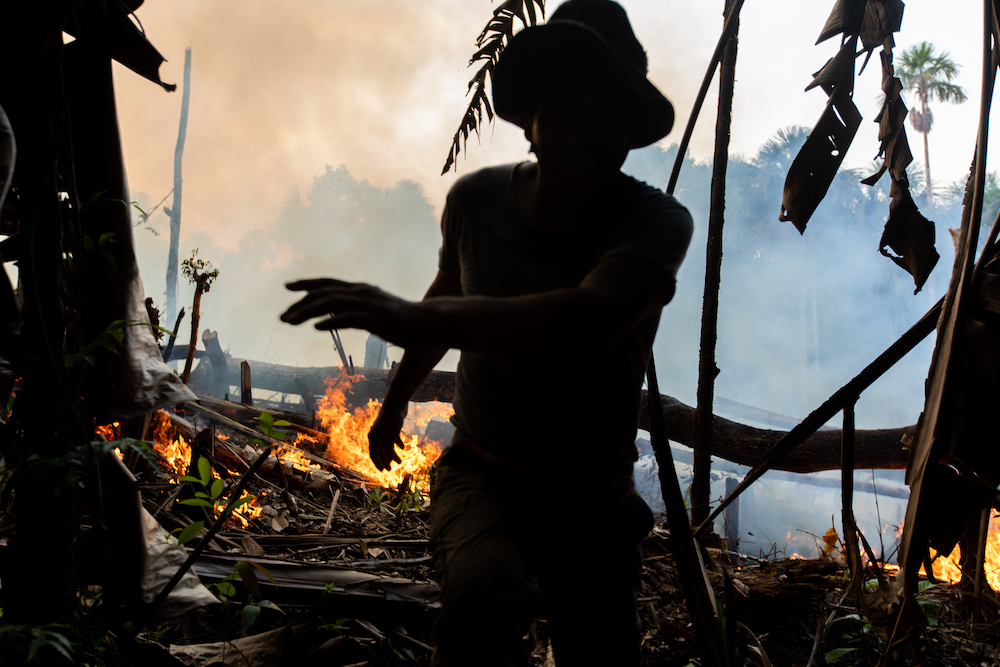
Logging degrades forests in many ways. In order to set up an operation, companies must first build roads to transport personnel, machinery, and timber. Constructing these roads involves the clear-cutting of large sections of forest, which pollutes the soil, air, and water, fragments habitats, and directly injures and kills plant and animal life. To make matters worse, most logging roads in Quebec are poorly maintained and cause long-term harm to aquatic ecosystems.
Cutting down trees on an industrial scale is immensely violent to forests, depriving plants, animals, fungi, and other organisms of essential ecological pillars and disrupting delicate food webs. Extensive logging makes an area more susceptible to wildfires as it replaces old-growth trees that slow and repel the advance of flames with saplings that are like kindling.
As climate change disrupts rain patterns and causes more extreme heat, the negative impacts of logging multiply and make Canada more susceptible to fires that begin earlier in the season, destroy larger zones, and linger for longer.
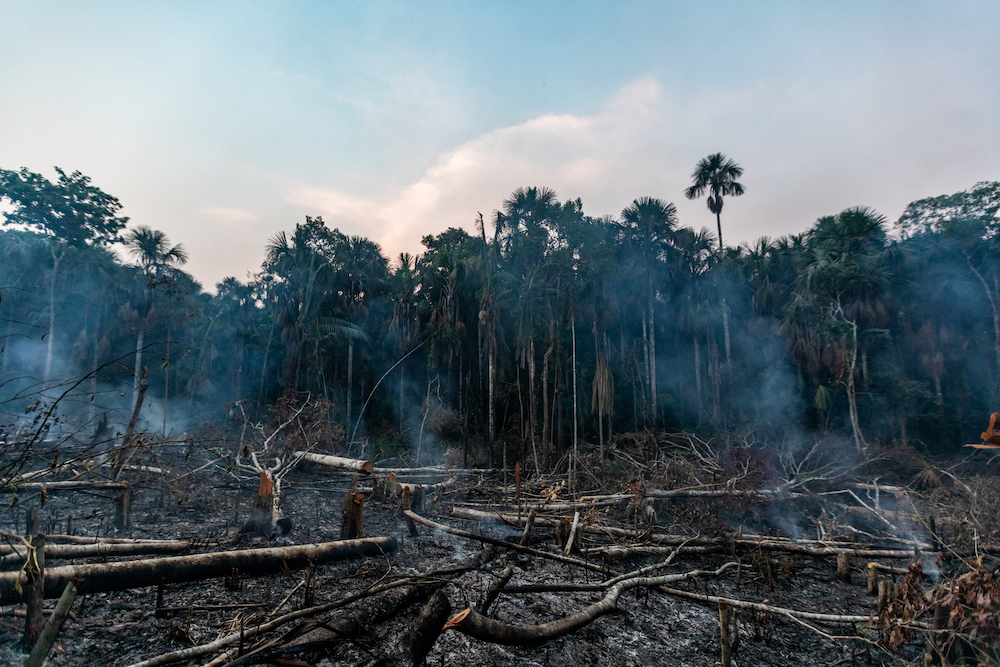
In this context, Quebec has to ensure that areas set aside for conservation receive robust protection from industrial development and logging. The government, private sector, and nonprofits also have to support and expand positive conservation efforts that are underway.
Age of Union has multiple projects around the world focused on protecting forests, including a partnership in Quebec with the Kenauk Institute and the Nature Conservancy of Canada (NCC) to create the largest temperate research forest in the world devoted to studying climate change and maintaining biodiversity over the next century.
NCC has worked to protect and restore 15 million hectares of forest in Quebec and recently acquired 200 hectares of forest around the Sutton Mountains.
A recent program to fund Indigenous efforts to oversee protected areas could create a template going forward. In Quebec, the federal government is funding a plan by the Cree to safeguard waterways, animal populations, and old-growth forests.
Achieving current conservation targets by the middle of the century will require trillions of dollars in financing. However, the ongoing Quebec fires serve as a stark reminder of the urgency to address climate change and biodiversity loss. By mobilizing global efforts, investing in sustainable solutions, and fostering international collaboration, we can overcome these challenges and pave the way for a sustainable future.
Credits
Mohsin Kazimi for Junglekeepers
Topics
Article written by
Joe McCarthy
Joe McCarthy is a writer based in Brooklyn who specializes in global politics, climate action, and pop culture.
Related
articles
Black Hole Experience, News
Black Hole Experience Premieres at C2 Montreal
News
Age of Union Alliance Unveils The Black Hole Experience, a Mobile Immersive Exhibition and Reset for Humankind
News
Age of Union Alliance Releases First Impact Report on Global Conservation Achievements Since Launch
Project
More articles
Black Hole Experience, Explainer
What Black Holes Can Teach Us About Nature and Spirituality
Black Hole Experience, News
Black Hole Experience Premieres at C2 Montreal
News
Age of Union Alliance Unveils The Black Hole Experience, a Mobile Immersive Exhibition and Reset for Humankind
News



